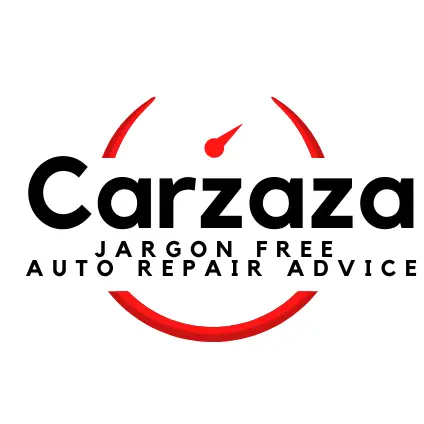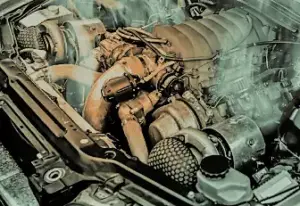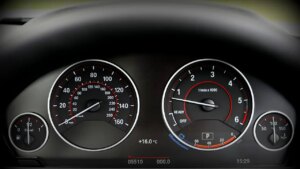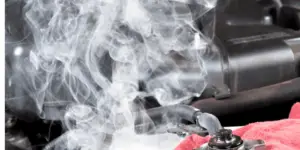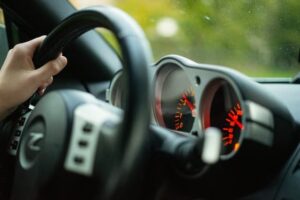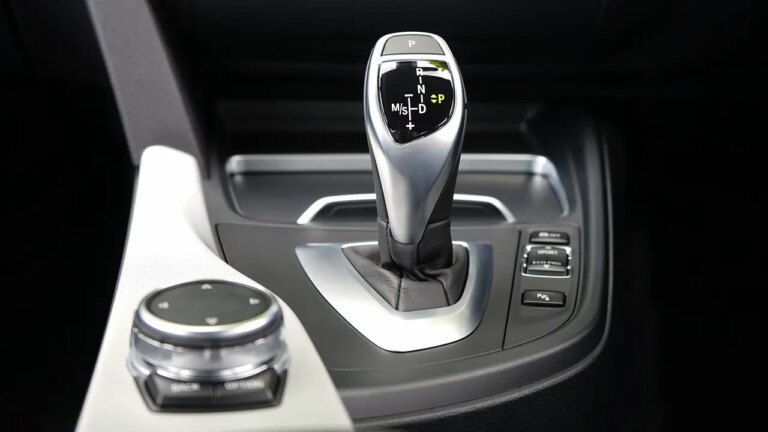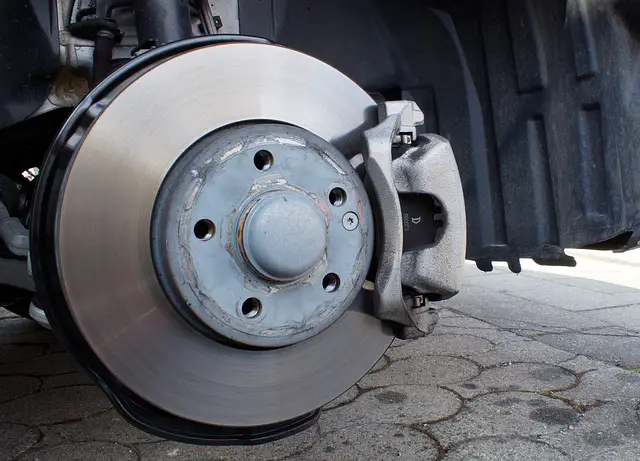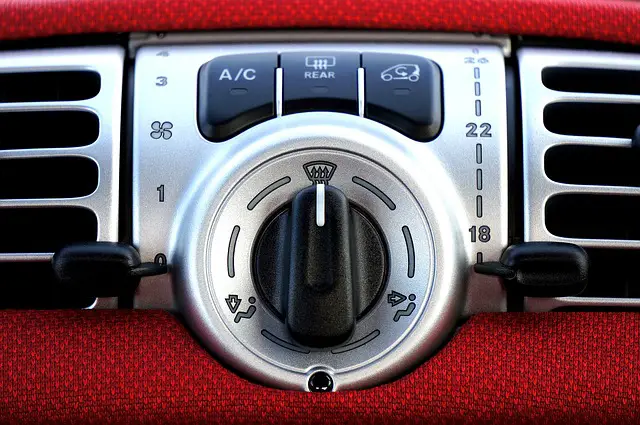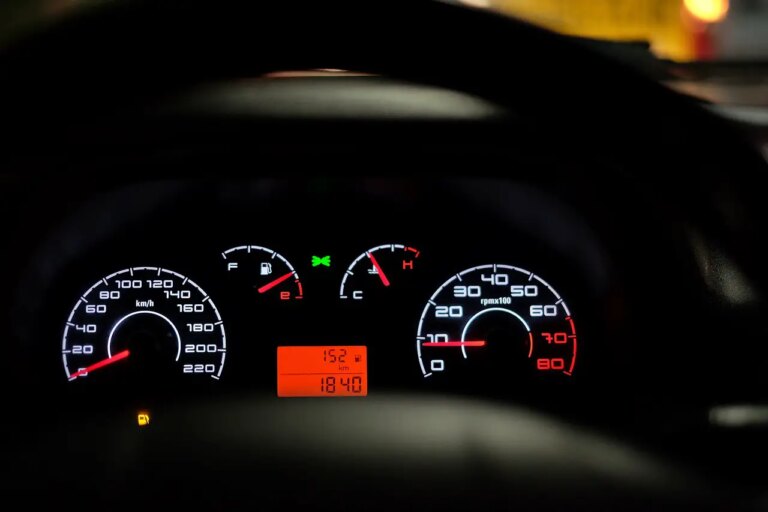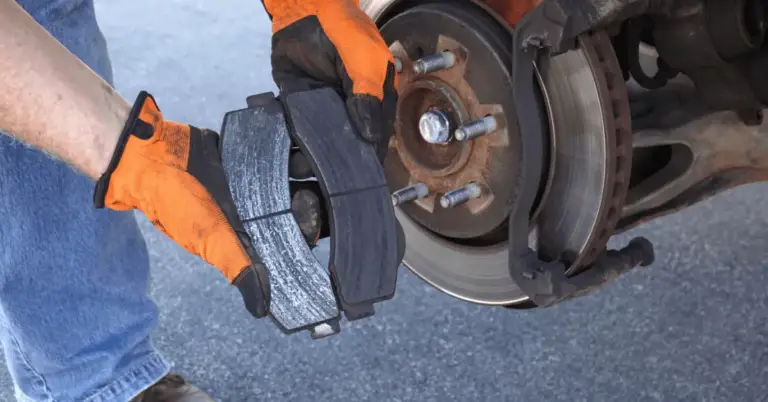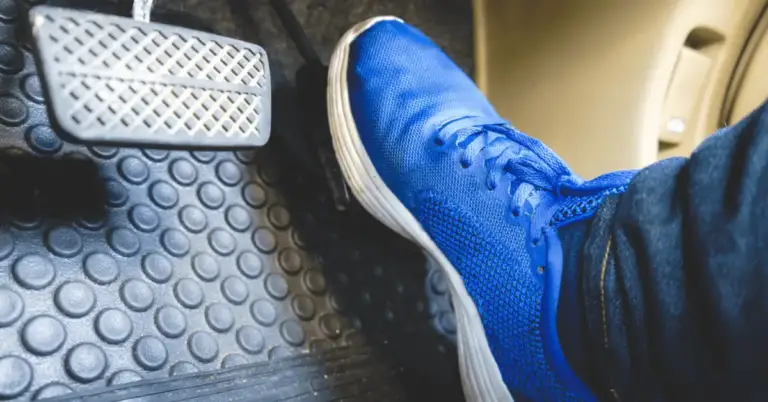It may cause you to scratch your head. It is a bit puzzling as the noise only happens when you turn your car to the right.
Here we’ll look at the most common turning noises, what they mean, if they’re serious, and what they’ll cost to put right.
The good news is that we can discount an expensive fix right from the start. Often a squealing noise when turning the steering wheel can be caused by a bad power steering pump.
However, the noise would be present whether you turned left or right. A power steering pump can cost up to $700 for the part and labor costs. As I say, we can move on as this isn’t the cause.
Five sounds can come from turning the steering wheel to the right. We’ll go through them in the order of most common through to the least.
Grinding Noise When Turning
Wheel Bearings
Each wheel has a set of bearings. If your car only makes a grinding noise when you turn right, this is the likely cause.
A wheel bearing’s job is to help smooth the wheel’s rotation against the hub or assembly. Without going into too much detail, wheel bearings do wear out.
They are metal balls encased in grease and sealed in a metal unit. They do fail when they dry out. When turning right, a grinding noise indicates that the front wheel bearings are failing.
Although most of the car’s weight is placed on the front tire in the direction of the turn – in this case, the right – it’s more likely the sound is coming from the bearings on the left wheel – but not always!.
You may also notice that the noise increases as you turn faster or that it grinds for a second and then stops before repeating.
This is because only some bearings have failed, and the noise only happens when they are put under the most stress. As the wheel rotates, the strain on those bearings relaxes briefly.
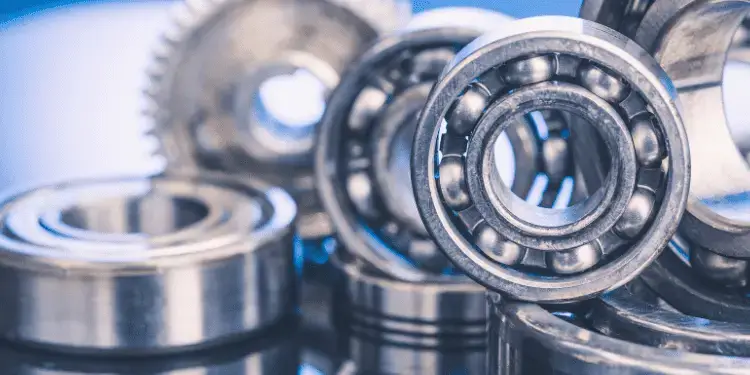
Is It Dangerous?
It certainly needs attention. Worn wheel bearings will put other car parts under increased strain. It can affect the drive assembly and suspension components too.
Left for too long, the bearings can generate extreme heat in the wheel hub area. Any grease left around the bearing could catch fire.
It’s almost certain that before this happens, you’ll get your car into the shop as a grinding wheel bearing noise will only get louder.
It won’t occur just when you’re turning right. It’ll start happening at all times and make people look up and stare as you drive by.
Repair Cost
Wheel bearings are not expensive and can be repaired by a competent DIY mechanic. You’ll need a specialist tool, though. A trip to the car shop is the preferred option for most people.
Expect to pay around $30 for a set of new bearings and an additional $100 to $175 in labor.
People also read: Do You Have a Grinding Noise From A Rear Wheel When Driving? [SOLVED]
Squealing Sound
Tire worn
All squealing noises when turning one way but not the other are tire related. The good news is there is very little guesswork involved here. A worn tire will struggle for grip. When it does, it will squeal – almost in protest – as it turns.
The squeal will come from the front wheel in which direction the car is turning. – It is taking more of the car’s weight. So if you’re turning right, the right tire takes the weight.
A visual check of all the tread will soon either confirm this as the cause or rule it out.
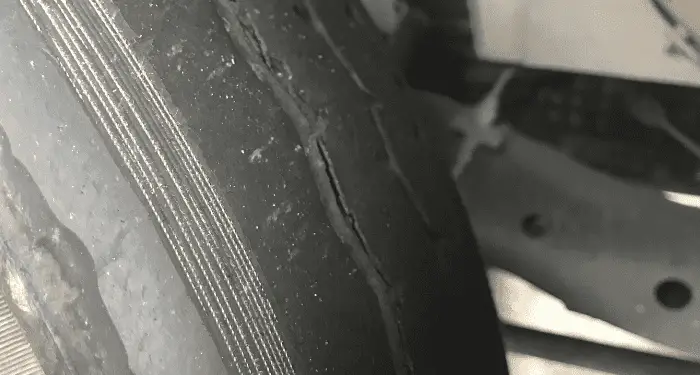
Tire Underinflated
Sometimes a tire underinflated by ten psi won’t be that obvious. It can make a big difference to how the tire grips the road. If you doubt the tire’s air pressure, get it checked.
If it’s underinflated, add air and go for another drive to see if that solves the noise.
Is It Dangerous?
An underinflated or worn tire won’t grip the road well. Your four tires are the parts that keep you on the road. You should get the tire inflated to the correct psi or replace a worn tire as soon as possible.
Repair Costs
Depending on the make and model of your car, tires vary in price from $30 up to $200 + for sports car tires.
Many used tires are perfectly fine to put on your car if you’re on a tight budget. Here’s our guide to where used tire shops get their tires from.
Clunking Noise When Turning
Tie Rod Ends
Your tie rod ends form part of the steering system, and as the name suggests, tie one end of a part – the steering knuckle – to the rack and pinion. This ensures that the force needed to turn the wheel occurs smoothly.
There is an inner and an outer tie rod end connected to both front wheels – so four in total. If you hear a clunk only when turning one way – say right, for instance – the inner or outer tie rod end on that side of the car is bad.
Is It Dangerous?
It will certainly need attention sooner rather than later. If you’ve just started hearing the noise, your car may be okay to drive for a few more short trips.
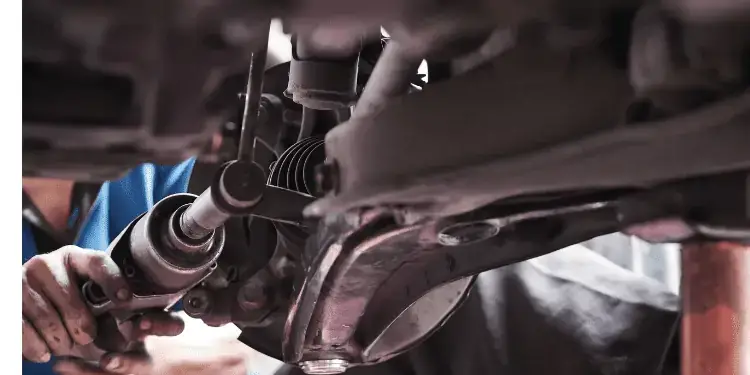
However, being part of the steering mechanism, it’s an important part and needs replacing as soon as you can.
It can affect your front wheel alignment if you don’t get it replaced. Your car’s steering wheel might shake and cause your car to pull to one side. This will also wear out your tires unevenly, adding to the end repair bill.
Repair Costs
Both inner and outer tie rod ends cost from $25 to $125. Labor costs to replace the inner tie rod ends are usually more expensive, between $100 and $150. Outer tie rod ends labor costs range from $120 to $175
Clicking
CV Joint
Your car has one CV joint per front wheel. Its job is to attach the transmission – which provides the power – to the wheel. These joints are positioned close to the wheel and are easily visible if the wheel is turned outwards.
A rubber cover covers these joints. The CV joint needs this protection as its position under the car makes it susceptible to dirt and stones, which can damage it.
When they get dirty or lose their grease within the joint, they make a clicking noise, especially when you turn the steering wheel. The bad CV joint will make this noise when the steering wheel is turned in its direction.
So if you hear a clicking noise when you turn right, the right side CV joint is bad.
You also feel vibration when driving in a straight line, and your car’s ride might not be as smooth as it used to be.
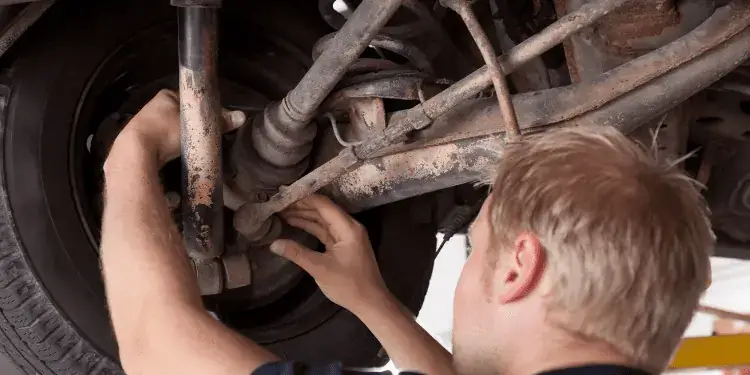
Is It dangerous?
In extreme cases, the CV joint can fracture when you’re driving. If this happens, you’ll lose all power, and any metal parts that come loose might cause damage to other parts in the area, such as the tie rod ends or wheel assembly.
Repair Costs
If the rubber boot has split and the joint itself just has dirt within it that can be removed and cleaned, you won’t need a new joint. Expect to pay $50 for labor to clean the joint and another $20 for the boot.
If the entire CV joint needs to be replaced, it will cost between $120 – $250 for the part and an additional $200 to $300 in labor. The total cost will be between $320 and $550.
Related article: How To Do CV Boot Replacement Without Removing The Axle
Humming
Wheel bearings
Wheel bearings can make a humming noise when you turn the wheel left or right.
Sometimes DIY mechanics, on hearing the noise during a right turn, replace the right wheel bearings only to find out that the left ones were bad. This can be a time-consuming mistake.
Tires
Underinflated tires can cause a humming noise when turning. This is due to a small amount of tire wall coming in contact with the road. A simple check to see if this has happened is to look at the right front tire wall.
It’ll be slightly worn if the wall has been rubbing on the road. It’s an easy spot as the tire wall should never be worn, as it should never come into contact with the road.
In Conclusion
A car makes a noise when turning right because either, a bearing is bad, a tie rod, or a cv joint needs replacing. The noise will get worse unless a repair is done.
